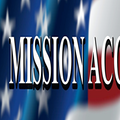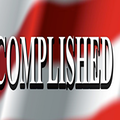How do you decide what is reliable and what is not when faced with two opposing sides?
It ain’t easy; there’s no silver bullet.
But am I to just decide that “imperial core” is bad and all other media is the “truth”?
Of course not.
I think you’re further along in answering your own questions than the vast majority of Westerners, who take just about everything the media says about international goings-on at face value.
The only reason so many normie Americans know about the Tiananmen protests/riots in the first place is because the American propaganda machine has made them known, to be understood in the way the Council on Foreign Relations wants them to be understood.
ok, I already got and agreed with the sentiment that propaganda media is the norm for America. My question is, how are you determining what is or isn’t propaganda being put forth by the media companies and articles you are presenting? Anyone can just say it’s the truth because they agree with it (look at qanon and general right wing media). What makes the reporting valid to you besides it’s apparent point of country origin?
Personally, I just have no clue. I know tragedies occurred and every side will skew the truth for their own perspective (this isn’t even malicious sometimes, just seeing a situation play out differently i.e. police forcefully but respectfully removed citizens vs police brutalized and forced citizens to flee the area). I wasn’t there, so I wont argue any specific events but I don’t just inherently trust one news source over another.
My question is, how are you determining what is or isn’t propaganda being put forth by the media companies and articles you are presenting?
It’s all propaganda. The term itself means pushing an agenda by propagating information. Separating fact from fiction requires following the sources any given outlet uses to support their claims. Part of the reason so many communists distrust western mainstream media so much is due to shady sourcing. A recurring issue, for example, is relying on anonymous (i.e. unverifiable) sources.
Another thing to consider when looking at this stuff is cui bono: who benefits? While a source pushing an agenda isn’t necessarily presenting false information, they are inclined to frame facts in a way that fits their narrative. Which facts do they include and which do they leave out? Which facts do they emphasize and which do they minimize?
It ain’t easy; there’s no silver bullet.
Of course not.
I think you’re further along in answering your own questions than the vast majority of Westerners, who take just about everything the media says about international goings-on at face value.
The only reason so many normie Americans know about the Tiananmen protests/riots in the first place is because the American propaganda machine has made them known, to be understood in the way the Council on Foreign Relations wants them to be understood.
ok, I already got and agreed with the sentiment that propaganda media is the norm for America. My question is, how are you determining what is or isn’t propaganda being put forth by the media companies and articles you are presenting? Anyone can just say it’s the truth because they agree with it (look at qanon and general right wing media). What makes the reporting valid to you besides it’s apparent point of country origin?
Personally, I just have no clue. I know tragedies occurred and every side will skew the truth for their own perspective (this isn’t even malicious sometimes, just seeing a situation play out differently i.e. police forcefully but respectfully removed citizens vs police brutalized and forced citizens to flee the area). I wasn’t there, so I wont argue any specific events but I don’t just inherently trust one news source over another.
It’s all propaganda. The term itself means pushing an agenda by propagating information. Separating fact from fiction requires following the sources any given outlet uses to support their claims. Part of the reason so many communists distrust western mainstream media so much is due to shady sourcing. A recurring issue, for example, is relying on anonymous (i.e. unverifiable) sources.
Another thing to consider when looking at this stuff is cui bono: who benefits? While a source pushing an agenda isn’t necessarily presenting false information, they are inclined to frame facts in a way that fits their narrative. Which facts do they include and which do they leave out? Which facts do they emphasize and which do they minimize?
Depends whether or not they agree with it. Unfortunately I think most people are like this :(
deleted by creator
deleted by creator
I obviously intend not to or I would have already, but go on.
👻 Oh no, someone can be both a whistleblower and a piece of shit. You know who else was a patriotic child sex predator? Thomas Jefferson.
deleted by creator
Notice the Lemmitor being an insufferably smug debate lord. Ipso Facto QED We got’em boys


I don’t owe any of that labor to anyone. People who want to know can look into the sources themselves and come to their own conclusions.
deleted by creator